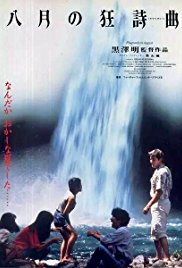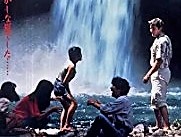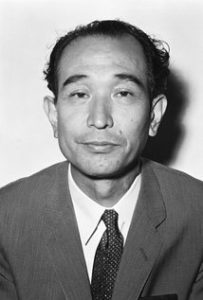Rhapsody in August [Hachi-gatsu no rapusodî] **** (1991, Sachiko Murasé, Hisashi Igawa, Richard Gere) – Classic Movie Review 6424
Writer-director Akira Kurosawa’s small-scale 1991 Japanese film made in his old age at 81 tackles all the big subjects – the bomb, war guilt, forgiveness, life, death, the future and the whole darned thing. Kurosawa’s screenplay is based on the novel Nabe-no-Naka by Kiyoko Murata.
Sachiko Murasé stars as Kane, an old lady and survivor of the Nagasaki bombing who is looking after her four grandchildren on a summer vacation. [Spoiler alert] They try to persuade her to visit her Japanese-American relations in Hawaii and her nephew (Richard Gere) comes to see her. A telegram arrives as Gere’s father, her brother, dies in Hawaii.
This is a very simple, but conversely often complex and moving picture, an old man’s legacy film that will appeal to many of Kurosawa’s followers but of course frustrate audiences looking for the action thrills expected from Kurosawa.
It is extremely well played, especially by Murasé, but the children actors are excellent too, and Gere (speaking Japanese) does exactly what is needed.
There is perhaps a slight sense of elusiveness and over-simplicity, as if Kurosawa feels he has to respond to viewers coming to him as the tribe elder for total wisdom, asking for the meaning of life. But this is a mature, real film, not a filmed play however wordy, stagey or actor based, and not a TV movie either despite its smallness of scale.
Also in the cast are Hisashi Igawa, Narumi Kayashima, Tomoko Ohtakara, Mitsunori Isaki and Toshié Negishi.
It is shot by Takao Saito and Masaharu Ueda, produced by Hisao Kurosawa and scored by Shinichiro Ikebe.
Akira Kurosawa (1910–1998).
© Derek Winnert 2017 Classic Movie Review 6424
Check out more reviews on http://derekwinnert.com




